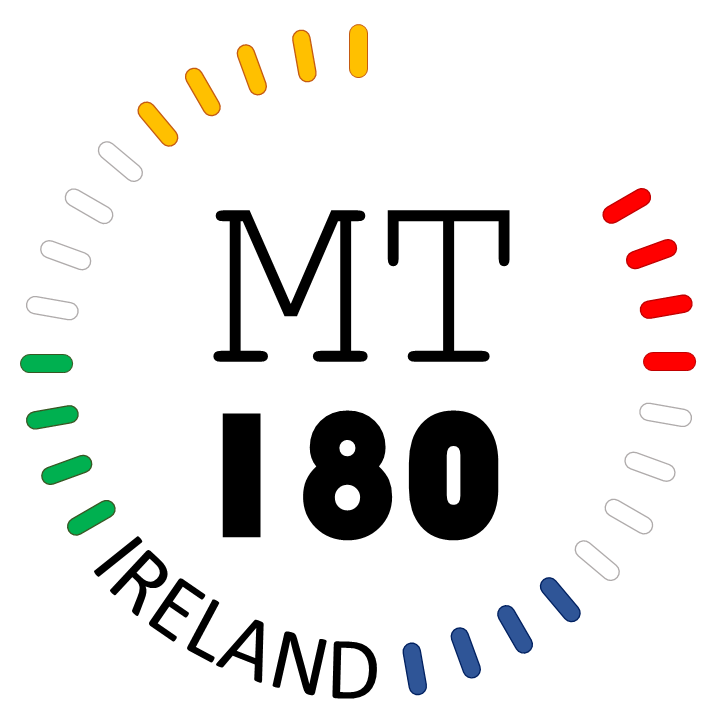
IUA are delighted to announce the upcoming “Ma thèse en 180 secondes” national competition, organised in partnership with the Association des études françaises et francophones d’Irlande, the French Embassy and the Agence universitaire de la Francophonie.
Doctoral Students – share your passion for your thesis subject while you test your French oral skills! You will have 3 minutes to present your research to a non-specialist audience…
The “Ma thèse en 180 secondes” (MT180) competition will take place online on September 3, 2021 at 4pm!
Ready to face the challenge?
New this Year:
The 1st prize winner will get a €300 voucher offered by IUA and a fully paid trip to Paris to compete in the international final of the MT 180 competition at the end of September 2021!
Participation:
All participants must be doctoral students, presenting their thesis dissertation subject in French in 3 minutes (180 seconds) for a general and non-specialist public. Presentations should be clear, concise and convincing.
Registration:
Registration for participation in the competition is now open and will close on August 10, 2021.
The 2021_mt180_registration_form must be sent to academic@ambafrance-ie.org & derval.conroy@ucd.ie
Prizes:
- €300 voucher offered by IUA
- €250 voucher offered by the French Embassy
- 2 Staycation vouchers offered by the Embassy of Belgium in Ireland
- 2 €50 vouchers for the Dada Moroccan restaurant, Dublin, offered by the Embassy of Morocco in Ireland
- Set of books for each laureate offered by AUF
Award ceremony:
The winners will be announced after the jury deliberation on 3rd September at 7 pm.
The winners will be invited to present their work on Saturday 4th September at the end of the ADEFFI’s Journée des doctorants online!
Contact information:
For any further information, do not hesitate to contact us at academic@ambafrance-ie.org
Eligibility and selection criteria:
To take part in MT180, participants must meet the following eligibility conditions:
- be registered or have been registered in a higher education or research institution in Ireland;
- be registered or have been registered in a higher education or research establishment in a research doctoral program with the writing of a thesis (PhD) or have obtained their doctorate during the twelve months preceding the international final ;
• present a sufficient state of progress of the doctoral research project;
• express themselves in French.
- the oral presentation must be given in French;
- no props, other than note sheets, will be allowed: no laser pointer, no clothing accessories used specifically for the presentation, etc.
- candidates may accompany their presentation with a visual support. It is not mandatory, but strongly recommended. Only one non-animated slide is allowed;
- the text on the slide must be in French;
- applicants must ensure that the images used are royalty-free or ensure that they have permission from the authors of the images for use in this competition;
- the surname and first name of the participating doctoral student and the logo of their university must not appear on the slide;
- the slide must respect the format, size and definition requested as indicated above;
- the title of the presentation written on the slide may differ from that of the doctoral thesis, in order to suit a non-specialist audience.
The members of the jury will evaluate the presentations given by the doctoral students according to three main criteria:
Public speaking skills and involvement
For example:
• Has the participant demonstrated the qualities of a speaker (rhetoric and eloquence): clear and confident voice, rhythm, fluidity of movement, presence, etc.
• Did the participant communicate their passion for their topic of study?
• Did the participant arouse public curiosity about their topic?
• Has the participant indicated a personal interest or possibly links with society?
Popularization
For example:
- Did the participant explain the concepts or ideas in accessible language?
• Did the participant use figures of speech, relevant examples or humour to illustrate their point?
Structure of the presentation
For example:
- Did the structure of the presentation and the flow of ideas facilitate understanding of the subject?
• Did the participant clearly explain the research they are conducting?
• Were the different parts (introduction, development, conclusion) of the presentation balanced?
Coup de coeur
Particularly exceptional point left to the discretion of the jury member. This may include emphasizing the originality of the candidate’s presentation.